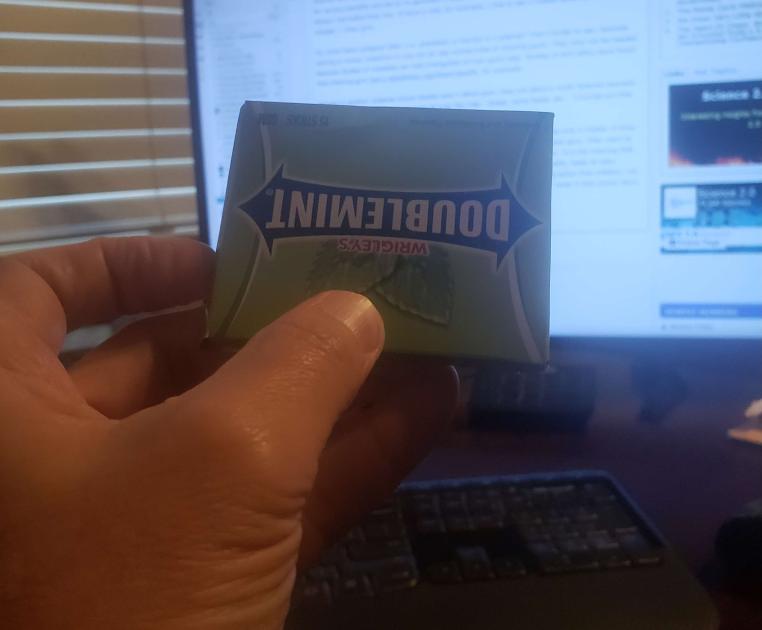My small batch artisanal data (i.e. anecdote) is fine but is it science? That's harder to say, because lacking a money incentive no one will do real clinical trials of chewing gums. They may not be needed because studies of maladies can help triangulate on how gums help. Studies of acid reflux have found that chewing gum has a statistically significant benefit, for example.
Nausea is another instance where studies aren't about gum, they are about a multi-factorial stomach problem, but though the causes were all over the map - stress, some foods, etc. - it turned out that gum commonly helped.

I always have a pack of gum at my desk, here is one while I write this article. Yet my brain says it is too early to chew it. Why? No idea. Companies make marijuana gum, they make morning pipe tobacco, so a morning gum would seem to make sense.
So many people report feeling better after chewing gum for nausea that is was only a matter of time before alternative companies even rolled out products like ginger and marijuana gum. They want to contend their ingredient is what produces the effect but that is just an adjunct - it is the chewing that helps. If a flavor, or a belief that CBD supplement accomplishes anything benefit, leads to slow, consistent chewing for 20 minutes or more, it may work. But it is the chewing action that matters, not if your gum is menthol. Minty gum sounds a lot better than "elastic polymer" even if that clunky term for chewable material is the secret sauce.
There is no firm answer yet because gum is supposed to be fun, not medicine. Yet it could be a key market. Studies show that nearly 80 percent of young people already chew gum occasionally, and if it helps them for nausea, that is a low cost and non-prescription remedy.





Comments